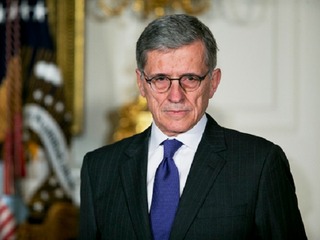
Nobody seems to like FCC Chairman Tom Wheeler’s net neutrality proposal. The plan involves an “Internet fast lane,” which would give Internet incumbents a major leg-up over newcomers, by creating a separate lane for those who can pay more.
At least 10,000 letters have been sent to the FCC by MoveOn.org members complaining about it, some established Internet companies have come out against it, and even 10 U.S. Senators sent him a letter last week urging him to drop the idea.
Rest assured: Wheeler has heard your complaints, and he is going to do something about it!
No, he’s not dropping the plan. But he is going to tweak it, according to a report out from the Wall Street Journal on Sunday. The fixes he is proposing, though, are not likely to make anybody any happier.
Wheeler is all set to update the language of the proposal, so that the FCC would now be able to “scrutinize the deals” in order to to make sure that the broadband providers are not screwing over the companies that do not pay them by giving prioritization to those that do pay.
The broadband companies would not be able to slow down the speeds of websites that don’t pay them, but the paying companies would still have access to faster lanes, giving them an inherent advantage.
Essentially, what Wheeler is proposing now will still allow the same thing to happen; just now it will come with an official FCC stamp of approval to legitimize the whole thing.
Does that make you feel better about it? No? I didn’t think so.
In addition, he is also going to seek comment on whether or not paid prioritization should be banned, and if the broadband companies should prohibited from showing favoritism, and making deals, with only some content providers (I think many people would say “yes” to both of those).
The problem with what Wheeler is proposing is that it would, essentially, create a two-tier system, though he says that is specifically what he wants to avoid.
“Prioritizing some traffic by forcing the rest of the traffic into a congested lane won’t be permitted under any proposed Open Internet rule. We will not allow some companies to force Internet users into a slow lane so that others with special privileges can have superior service,” he said during a keynote address at the National Cable and Telecommunications Association Wednesday.
But, he seems to miss the point. By creating a fast lane for established companies, that inherently makes all of the other lanes slower in comparison. Even if they go at the same speed they are going now, it still puts them at a disadvantage going forward.
Wheeler is going to have to do more than simply tweak the proposal to mollify the many people who don’t want to see the Internet become divided among the haves and have nots.
The FCC was not available for comment on the report. We will update this story if we learn more.
(Image source: dpchallenge.com)
















